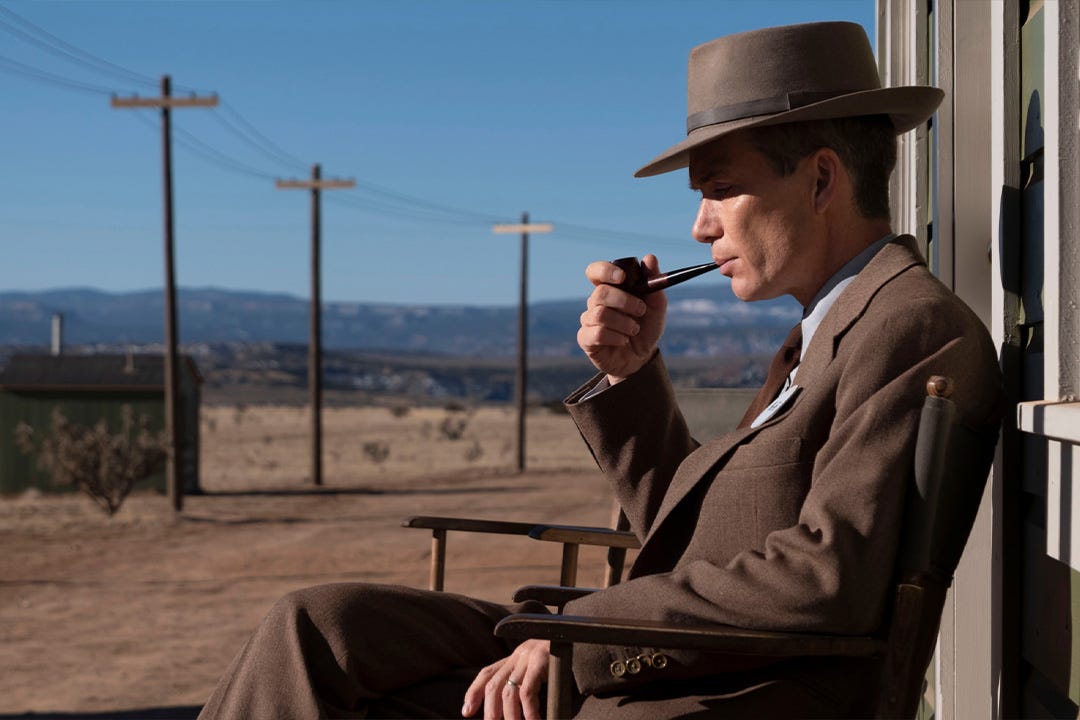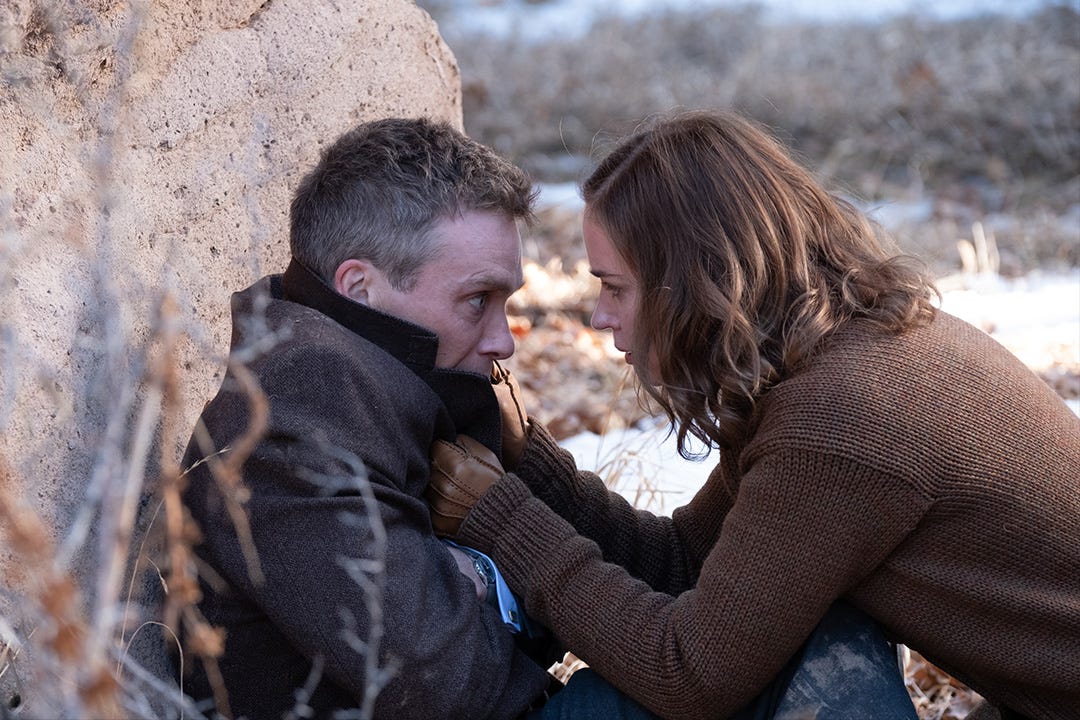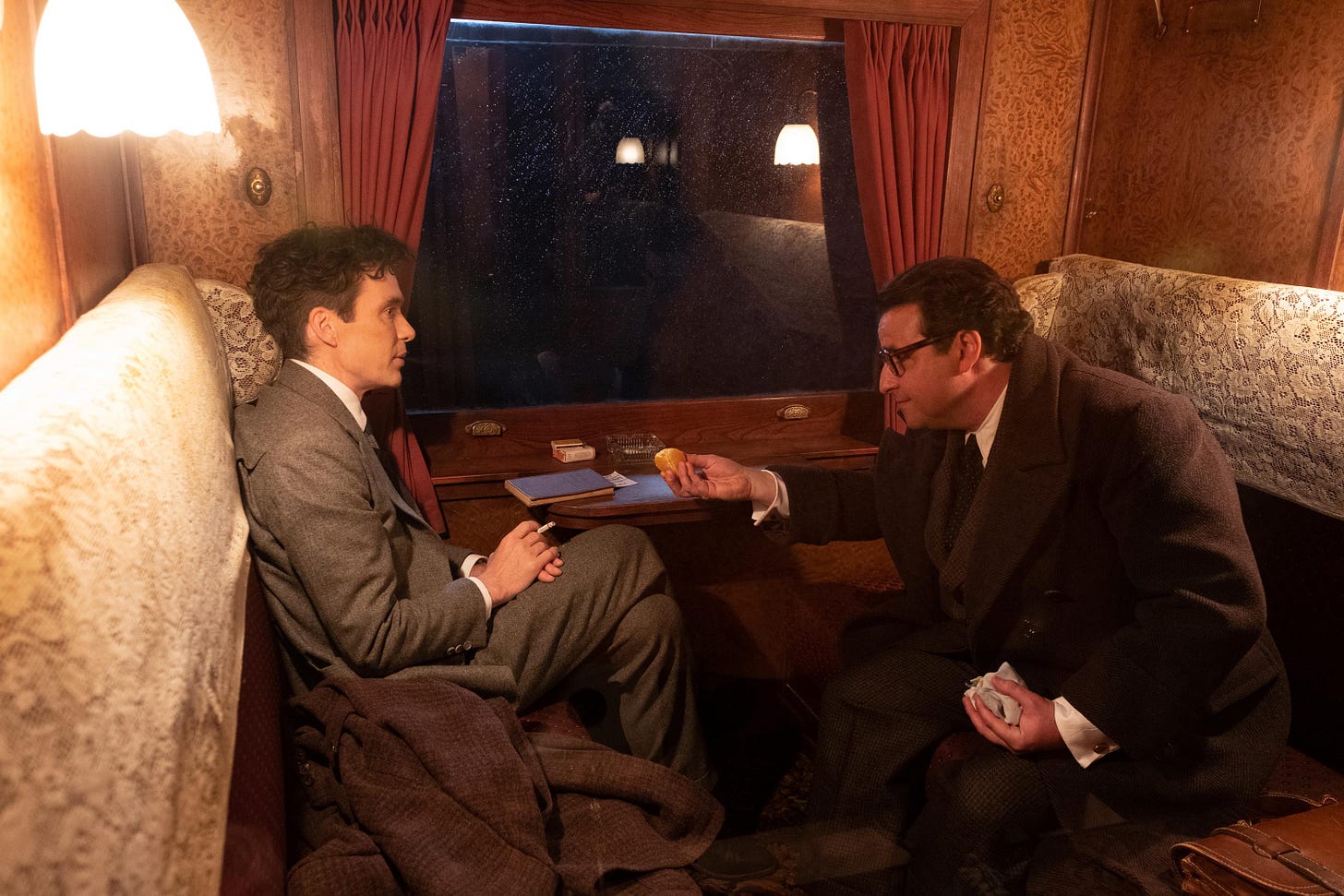Christopher Nolan makes cinema sing again with 'Oppenheimer'
Consider this the movie event of the summer, possibly the year.
When you think of classic cinema, a movie that just shuts off a bad mood and opens up your mind to all possibilities, it’s a collage of factors.
A multi-faceted script sparks a flame, such as a brilliant scientist who finds a way to save the world while also bringing a never-ending storm into his personal life. A cast of elite actors, people working at the top of their game, sure helps. A director who made the film not for a gig, but because this story had to be told by him? Check.
Christopher Nolan’s Oppenheimer is true top-shelf cinema. You feel it in the theater, like a spell breaking good and making the mind feel at ease. Nolan’s confidence and assurance makes all of his films unique achievements; it just comes down to whether or not they hit you in the chest or not. He finds the brain easy, but the chest isn’t as easy.
Interstellar and Tenet were technically profound, but emotionally uneven in their impact. Dunkirk hit the nail pretty hard with its varied timeline approach, but took a while to really settle in. A recent listen of the score number, Variation 15, brought on a whole new appreciation for the 2017 film.
I can easily say Oppenheimer is Nolan’s most accomplished and complete film since Inception, and that sneaks over the overstuffed yet satisfying Dark Knight Rises. He’s in his comfort zone, using IMAX cameras and making as much of his film with practical means. He really did set off a pretty big bomb during filming to try and mimic the test device explosion during the famous Manhattan Project. That’s the Nolan effect.
Giving Cillian Murphy the biggest slice of the pie was a home run swing by Nolan and his producing partner/wife, Susan Thomas. After many collaborations, albeit smaller, Murphy leans into his the title role of J. Robert Oppenheimer. The creator of the atomic bomb, that one that ended World War II while opening up power plays by the United Nations for decades to come.
Murphy, a virtuoso performer long in search of a movie role that could catch up to his talents, wears all of that guilt across his Irish face. Expertly slipping into doomed Jewish hero clothing without much makeup, it’s not hard to see the second-guesses and sleepless nights on the actor’s face. I can guarantee he’ll be nominated for every award that means something. I’d place good bets on him winning. No offense to the rest of 2023’s Best Actor slate, they’re already a couple laps down in the race.
Murphy stands out in a flawless cast, a collection of actors that would make Adam McKay blush. Matt Damon is great because he can shine in a shotgun seat sort of role, or take the wheel for a few scenes. His General Leslie Groves has an acerbic wit that bridged the gap between Oppenheimer’s ego and a restless U.S. government. The older he gets, the more at ease being a character actor Damon becomes.
Emily Blunt doesn’t just play the housewife who watched as her husband changed the world; the actress installs a grit inside Kit Oppenheimer that stabilizes the third act. It wasn’t easy being the lady of a lady magnet, and what Murphy and Blunt create on screen isn’t familiar but stays true.
The Oscar talk for Robert Downey Jr. as the instrumental Leslie Strauss, the father of the Atomic Energy Program, is legit. After taking it easy for a few years following Avengers: Endgame, he makes one heck of a comeback in Nolan’s opus. From the moment he corrects Oppenheimer on how to say his name (it’s Stros, damn it!) to the twisty relationship those two built over the years, Downey Jr. embodies a guy who always wanted to play with the big minds, yet couldn’t always find a way to their respect.
Strauss brought together brilliant minds in a facility that allowed them to think freely and find a quicker path to the discovery of a magical idea. He’s the third wheel in a great early scene that involves Albert Einstein (beautifully played by Tom Conti) and Oppenheimer having a conversation next to a lake that Strauss can’t hear and makes blind assumptions on; the scene becomes more pivotal towards the end of the film. It’s a lived-in performance from Downey Jr.
The cost of genius is severe, especially in “Oppy’s” case. Nolan’s film isn’t just about the building and success of the bomb that changed things; it’s a dual-sided Greek tragedy, playing out in multiple storylines. The latter screenplay maneuver is becoming a Nolan staple, which isn’t a bad thing considering the bold script here.
Nolan co-wrote the script with Kai Bird and Martin Sherwin, and the trio create rapid-fire, Sorkin-esque dialogue that the actors run with. The likes of Josh Hartnett, Rami Malek, Matthias Schweighofer, Olivia Thirlby, Dane Dehaan, Gary Oldman, Casey Affleck, and Jason Clarke deliver it with aplomb.
Florence Pugh and Benny Safdie have juicy supporting roles. Alden Ehrenreich steals a couple scenes from Downey Jr, and who doesn’t love a little James Remar? Nolan always attracts a big cast, but he also always puts them all to perfect use. My standout appreciation is David Krumholtz, who once upon a time played Buddy the Elf in Tim Allen’s Santa Clause. Here, he’s Robert’s close friend and Rabi. It’s a performance.
Nothing hits harder in a big film like this than a hard-hitting score. Remember Leonardo DiCaprio waking up on that beach to the loud, pounding drums of Hans Zimmer’s notes. Ludwig Goransson’s score is the invigorating aspect of Oppenheimer. It crashes down on the viewer like thunder early on, and never lets go for the three-hour film. It’s a score I will devour over the next few weeks on runs, drives, and walks. Great music elevates even a superb film. Goransson’s work here leads the pack in 2023.
The Nolan model is clear. Rich character studies about flawed yet driven men made on a blockbuster scale. Having watched him slowly form something special over the years with Murphy, it’s so satisfying to see them stand tall in this vital and timely movie. Oppenheimer’s focus is just as steady on the aftermath as it is on the breakneck construction of the ultimate world-ender.
At one point, Murphy’s brainiac describes his fascination with a star’s life and death early on in the film, talking about the bigger it is, the more explosive and profound its demise is. The bright light essentially folding in on itself due to the immersive pull of gravity. In a way, he’s describing himself and his eventual fate. How the most fascinating minds can eventually fold in on themselves, thus swallowing their own genius.
Nolan’s film teaches us that power is the ultimate weapon, not a mere bomb dropped in the ocean. How people acquire it, control it, deal with it, and try to outrun it. More than anything, Oppenheimer’s legend reminds us that even the greatest minds can fly low to the ground due to the all encompassing effects of life’s greatest treasures: lust, being the best, and the cost of it all.
Thanks for showing us what real cinema looks like, Chris Nolan.








